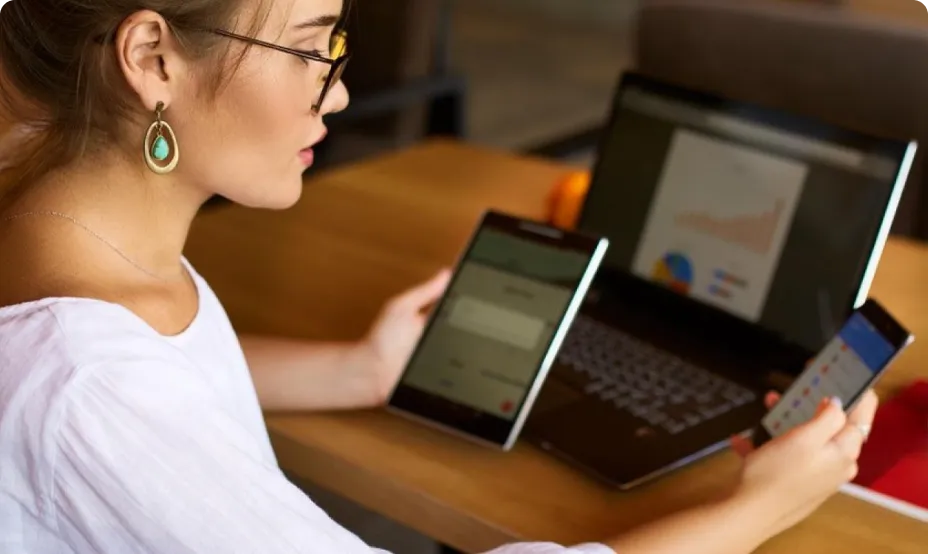Since the first containment, we hear a lot about the “world after” and its ideals. After long difficult months marked by an unprecedented health crisis, what do the talents dream of? So what are the expectations of French employees post-confinement and what is their new vision of work? Here is a summary of the latest studies on the subject.
Doing deeply useful work
The health and economic crisis we are going through is certainly painful, but it has the merit of having put the dots on the -i. According to an IPSOS survey, the year 2020 has led to an important quest for meaning among French employees.
90% of employees surveyed said it was essential (55%) or important (35%) that their company “give meaning to their work”.85% of them also consider it essential (38%) or important (47%) that their company allows them to “feel useful to others”. In a context where heroic caregivers were applauded every night, it seemed inevitable not to question the usefulness of their own work.
The social responsibility of companies is also raised: 83% of respondents to the IPSOS survey consider it essential that their company supports causes of general interest.
“This quest for meaning has been growing for the past ten years among employees, and the health crisis has accelerated the trend,” emphasizes Brice Teinturier, Deputy Director General of IPSOS France.
And indeed, numerous studies prove it: the quest for meaning at work is not a recent phenomenon in France. According to the study “Salaried employees and other forms of employment” conducted by APEC in March 2019, 51% of executives already considered it “very important” to have a meaningful job. Some of the expectations of French post-confinement employees are therefore not new. This year will have acted as a catalyst.
Caution is the order of the day
When it comes to professional mobility, French executives seem, in theory, still inclined to change jobs. According to the 20ᵉ edition of the cadremploi barometer (September 2020), 38% of executives surveyed said they were open to opportunities (compared to 36% in 2019).
In practice, these same executives are much less sensitive to change than they were last year. 52% plan to stay with their company. An increase of 17 points, compared to 2019.
The independent lifestyle trend also seems to be at a standstill among executives. They were 5% to be tempted by the freelance wave in 2019, they are now only 1% to be tempted.
Also, this caution varies significantly, depending on the age of respondents: 70% of those over 50 years old want to stay in their company (+18 points compared to 2019) against only 43% of 18-34 year olds (-9 points).
Better reconciliation of professional and personal life
Still according to the cadremploi barometer released at the beginning of the year 2020, the priorities of executives are not quite the same since the confinement.
Also, Among their decisive decision criteria for their future job, work/life balance takes pride of place, for 71% of respondents (compared to 66% in 2017). The location of the company is now only the second most important criterion.
These figures are confirmed by the Cisco France study entitled “The employees of tomorrow” conducted in the fall of 2020. According to this survey, 45% of French employees were happy to incorporate physical activity into their routines. A sign of a better work-life balance. While compensation still remains a fundamental decision factor, it is losing 7 points (62% vs. 69% in 2017).
Quality of life at work comes first
The IFOP survey “Employees’ Perceptions and Expectations for the Post-Confinement Period” released in May 2020 is unanimous. Today, 74% of employees believe that “there will be a before and after COVID-19” in terms of their company’s organization. Also, 58% of them no longer see their work in the same way.
And, among the new expectations of French employees after containment, there is a renewed interest in QWL (Quality of Life at Work).
According to IFOP, 81% of employees believe that the subject of well-being at work is a priority issue that their company should consider. In September 2018, they were only 56% to think so.
More concretely, French employees aspire to “better reconcile personal and professional life” (for 50% of them), “change the pace of work” (41%) or “do more telecommuting” (30%).
Working from home is increasingly popular
If it was first forced, telework has imposed itself smoothly, and seduces today a good part of the French employees. According to the cadremploi barometer, 67% of the executives express a stronger interest for occasional telework. Many of them (41%) are also demanding more flexibility in terms of working hours.
A trend confirmed by the 2020 study conducted by Cisco France. Its figures are very clear. Before lock-in, only 4% of the French respondents were already working from home most of the time. Today, an overwhelming majority of them hope to keep their autonomy: 88% of them want to keep some freedom. Their ideal work mode? A hybrid mix of face-to-face and telecommuting.
“In today’s environment, it has become essential to foster a strategic approach to technology. Ensuring business resilience has become a vital element in bridging the digital divide created by the crisis. We are facing with a new challenge: adapting workspaces while guaranteeing optimal security,” says Laurent Degré, President of Cisco France.
Autonomy and trust: two fundamental values
If the repeated confinements have allowed companies to grant more autonomy and trust to their employees, managers value these values more and more, according to the cadremploi barometer. For executives, a good manager can delegate and trust (for 36% of respondents), knows how to make decisions (30%) and listens to his employees (29%).
Many executives also prefer a more horizontal management style. Their ideal manager does not hesitate to call upon their expertise (according to 73% of respondents), encourages their autonomy (for 68% of respondents) and knows how to share responsibilities (for 65% of respondents).
Expectations shared by all French employees! In fact, according to the Cisco study, if employees had the opportunity to be CEO for a day, “83% of them would make effective collaboration and communication tools a priority. And 57% would also aspire to travel less and use that time more productively.
Expectations of French employees after the lockdown : in conclusion
The current health crisis has reshaped our daily lives, as well as our cultural norms. Our work habits have had to be rethought. It is therefore normal that the expectations of French employees post-containment have also evolved. All studies are unanimous. The most valued elements in 2020 are a caring and empowering management, a better work/life balance, and the possibility to do work that is likely to be useful.
Many employees are also looking for more autonomy and flexibility. In order to encourage collaborative work within your company, don’t hesitate to invest in the right software. Recruitment software such as JobAffinity can help you optimize your remote onboarding.








